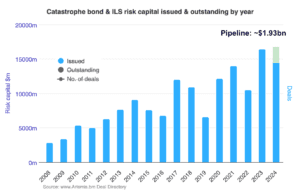Could Looming Recession Endanger Remote Work?

Could Looming Recession endanger Remote Work?
The ability to work from home has been a lifeline for many during the COVID-19 pandemic, but some feel that a recession could jeopardize remote work.
The coronavirus pandemic forced millions of American workers to do their jobs from home. It was a challenging adjustment for some, but overall, working remotely proved to be a lifesaver for many people who otherwise would have lost their jobs or had to take significant pay cuts.
It then evolved from something that needed to be done, to something people wanted to do. A study from McKinsey found that 58% of respondents work from home at least one day per week, while 35% stated they could work remotely five days per week. The study also proves it is a highly desirable benefit because 87% of the respondents would work flexibly if they could.
Unfortunately, some believe this perk could be in danger if the economy worsens and we enter a recession.
A recession would give employers power
In a recession, employers have more power. They can be more selective with their hiring, and they can get away with offering lower salaries. This puts employees in a position where they have to take whatever job they can get, even if it doesn’t allow them to work remotely.
As a result, employers could demand that employees return to the office full-time. For example, Elon Musk has already brought all Tesla employees back to the office, and other companies are sure to follow suit if the economy weakens.
According to Kastle Systems, in March 2022, US office occupancy rates reached their highest point since before the pandemic. Office occupancy rates hit 42% of pre-pandemic levels compared to 18% in December 2021. And this figure is likely to rise if the recession hits.
Whether or not the U.S. is officially in a recession, companies are starting to tighten their belts. For example, as of early August, the U.S. tech sector has laid off more than 37,000 employees, with companies like Shopify laying off 1,000 employees, Netflix around 450 and Coinbase 1,100. Other industries are following suit, with companies like Warner Bros, Discovery, Tesla and OneTrust announcing layoffs, while companies like Uber and Meta announced hiring freezes.
Despite all these layoffs and hiring freezes, the job market is still relatively strong. The unemployment rate in July was 3.5% which is still much lower than the historical average of 5.8%.
However, if the recession hits, this number will surely rise, and employers may take advantage. This could mean many employees will have to give up the ability to work remotely.
How likely are employers to require a return to the office en-masse?
Some argue that flexible work arrangements have become too engrained in the workforce, especially among the younger generation, for remote work to be completely eliminated. It is also a free perk that companies can use to attract and retain talent while allowing them to save money on office space.
Requiring workers to return to the office is also considered the best way to lose younger employees. One study found that 70% of those aged 18 to 24 stated they would think about leaving their current jobs if they could no longer work remotely.
For this reason, experts believe most companies won’t require their employees to return to the office full-time. They might need some in-person work, but not five days a week, especially since it would raise costs.
What’s more, remote workers are more productive than their in-office counterparts. According to Stanford University, in the summer of 2020, remote workers were 5% more productive, and that figure rose to 9% by spring 2022 as companies adapted and streamlined their processes.
Another benefit companies would lose if they demanded that employees return to the office is the ability to hire from a larger talent pool. If companies are only willing to hire people who live near their offices, they are excluding a vast number of potential employees.
Also, remote workers are often willing to accept lower salaries than their in-office counterparts because the ability to work from home is considered a valuable benefit. For example, a survey of 3,000 employees working at major companies such as Microsoft, Google, and Amazon discovered that 64% would opt to work remotely permanently instead of receiving a $30,000 pay increase to work in an office.
Remote work also improves retention rates, which even the government had to acknowledge. In March, President Biden insisted that most federal workers had to come back to the office. Only a few months later, the entire administration cited remote work as an excellent approach to improving recruitment, productivity, and retention.
While the recession might tempt some companies to demand that their employees return to the office, it’s not likely to be a widespread practice. The benefits of remote work are simply too great for employers to give up.
For more Employee Benefits information, contact INSURICA today.
Copyright © 2022 Smarts Publishing




